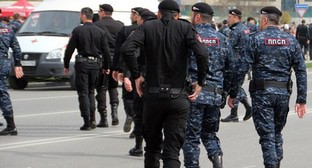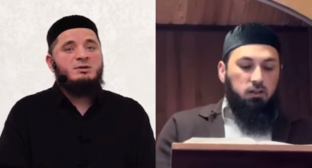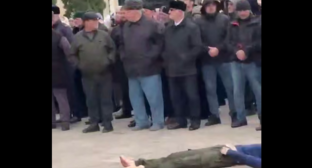20 May 2003, 14:36
Shkuro, Andrey Grigoryevich
Real last name is Shkura. Lieutenant general, one of the leaders of Cossacks' resistance against the Soviet power in the Kuban area and the Northern Caucasus during the Civil War.
Born February 7, 1887, in the city of Ekaterinodar (now Krasnodar). Graduated from Third Moscow Cadet Corps and was enlisted in the Cossack Company of Nikolaevsky Cavalry College. In May 1907, received an officer rank and was distributed to serve in First Umansky Cossack Regiment of Kuban Cossack Army, under brigadier Golovatov's command. Served in the fortress of Kars, participated in the expedition fighting the gangs in the territory of Persia, where he received his first award - third-degree order of St. Stanislav (orden Stanislava 3-ey stepeni). In 1908, was transferred to First Ekaterinodar Cavalry Regiment under ataman Zakhar Chepig's command quartered in Ekaterinodar. During the service, got married; visited Belgium and Germany on his wedding journey.
During the early stage of the WWI, served in Third Khopersky Regiment of the Third Caucasian Military Corps as a junior officer. This regiment participated in heavy battles in Galitian Front. Was wounded several times; in November 1914, was awarded St. George arms for the combat courage. In summer 1915, was promoted to yessaul (senior Cossack officer) for the knowledgeable command.
Having cured from a wound and making use of the calm in the front, suggested a project of reform of a commando detachment. Having received the approval from the commandment in December 1915, formed First-Sergeant Shkuro's Kuban Special Cavalry Detachment of Kuban Cossacks in January 1916. The detachment first intruded the German troops' rears in Romanian Front, but departed for the North Caucasus after the February Revolution and then to the Cavalry Corps under general Baratov's command acting in Persia. Since May 1918, colonel Shkuro started active struggle with Bolshevism. After an unsuccessful attempt of an anti-Soviet riot in Kislovodsk area, Shkuro left for the Kuban, where he formed a new detachment.
After the detachment's reunion with the Volunteer Army, Shkuro commanded a Cossack brigade, then a division, and military corps since May 1919. Was promoted to lieutenant general by Denikin. In March 1920, after a number of military failures, Shkuro was sacked from commandment by the new commander-in-chief general Vrangel. After the White Guards' defeat, emigrated to Constantinople, then to France. Lived in Paris, worked as a horseman in circus.
After the start of the WWII, made a decision to collaborate with Hitler. Together with former Don ataman Krasnov, took part in forming Cossack troops within Wehrmacht, was responsible for the Cossack reserve. The Cossack units did not enjoy much trust from the German commandment and only participated in the battles of the East Front once (the battle of the 15th Cossack corps of Wehrmacht with 133rd rifle division named after Stalin). Mostly, the Cossack units of Wehrmacht were used to fight guerrillas in Byelorussia and Yugoslavia.
After the end of the war, was extradited to the Soviets by the English Army commandment together with other Cossacks. The Cossack generals A. Shkuro, P. Krasnov, S. Krasnov, T. Domanov, and North-Caucasian highlanders' detachment leader Sultan-Girey Klych were sentenced to death. Andrey Grigoryevich Shkuro was hanged at the court's decree on January 17, 1947.





Комментирование через Кавказский узел